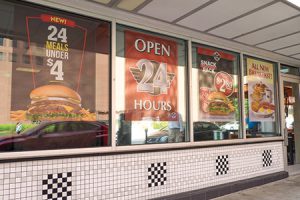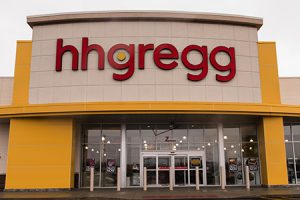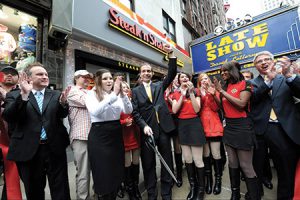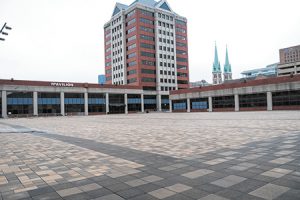
A hard-to-digest reality: Steak n Shake might not make it
The outlook is that bad for Steak n Shake, which in the first quarter racked up an $18.9 million operating loss. That’s on top of a $10.7 million loss for all of 2018.

The outlook is that bad for Steak n Shake, which in the first quarter racked up an $18.9 million operating loss. That’s on top of a $10.7 million loss for all of 2018.

The Justice Department’s April 25 press release—which announced Celadon had admitted to the fraud and agreed to pay $42 million in restitution—closes by noting that the investigation is ongoing.
Kansas-based Aratana Therapeutics has three treatments approved by the U.S. Food and Drug Administration and is working on drugs for a range of disease fields, including cancer.

A powerful group of hoteliers that opposes a proposal to build a pair of hotels on Pan Am Plaza scored a victory in the Legislature. But the plan to construct the project remains very much alive.
Software maker Determine Inc.'s investment bankers contacted dozens of prospective suitors as the company racked up millions of dollars in losses and burned through cash.

A longtime tech leader has stepped in to try to turn around one of the most-ballyhooed startups in state history but one that has perennially underachieved and burned through $30 million in capital.

What's wrong with Steak n Shake? Sardar Biglari says a key problem is a failure to upgrade kitchen equipment and design, leaving the chain with “high-cost, labor intensive, slow service.”

The suit charges that accepting the deposits at a time HHGregg’s tailspin cast doubt on its ability to provide the merchandise saddled the company “with tens of millions of dollars in unwarranted and unnecessary liabilities and recklessly caused the permanent destruction of the company’s value as a going concern.”

The CEO of Simon Property Group says the company's "fifth platform" will leverage its huge customer base—its more than 220 properties draw more than 100 million customers who make 2 billion visits a year.
When the Indianapolis-based drug giant made its initial offer Dec. 20, it said it wanted to seal the deal before the J.P. Morgan Healthcare Conference, which ran Jan. 7-10 in San Francisco.

The soaring Hispanic population can be a powerful engine for growth in the Indiana economy—potential that some of the state’s best-known businesses are embracing.
Days after Gannett Co. agreed to buy Central Newspapers Inc., parent of The Indianapolis Star and The Arizona Republic, for $2.6 billion in 2000, then-Gannett CEO Doug McCorkindale toured the Indianapolis newsroom and declared, “It’s going to be business as usual, for the most part.” It was the last four words that worried Star staffers—who were […]

The ringleader in one of the largest corporate-fraud cases in Indiana in recent years says his legal team at Barnes & Thornburg failed to disclose a “profound conflict of interest.

Connecticut-based Loxo Oncology, which was founded in 2013 and went public a year later, has a cancer drug in development that recently received U.S. Food and Drug Administration "breakthrough therapy" status.

The proposed five-story complex, planned for the heart of Broad Ripple, drew concern from residents over potential parking issues, the height of the proposed buildings and the future of the alley running north-south through the property.

The 360 Market Square apartment tower opened in March—a $120 million, 27-story structure that redefined downtown’s eastern skyline. Much of the year’s other development took in the Mass Ave district.
Investors have turned pessimistic about everything from the inevitability of a U.S. recession to growing international trade disruptions and higher loan defaults.

The value of Biglari Holdings shares have slid since the company at Sardar Biglari's behest adopted a dual-class stock structure in May.

The frenzy of deal-making inevitably leads to speculation about the future of WTHR-TV Channel 13—which, incredibly, has been under the ownership of the same family—the Wolfes of Columbus, Ohio—since 1975.

Hospitality industry observers say this is far from an ideal time for Kite—a publicly traded real estate investment trust specializing in shopping centers—to veer outside its core business and tackle what would be a risky and colossal project that easily could cost more than $600 million.